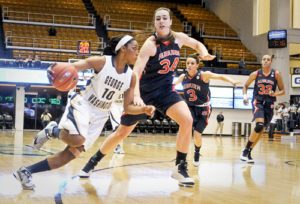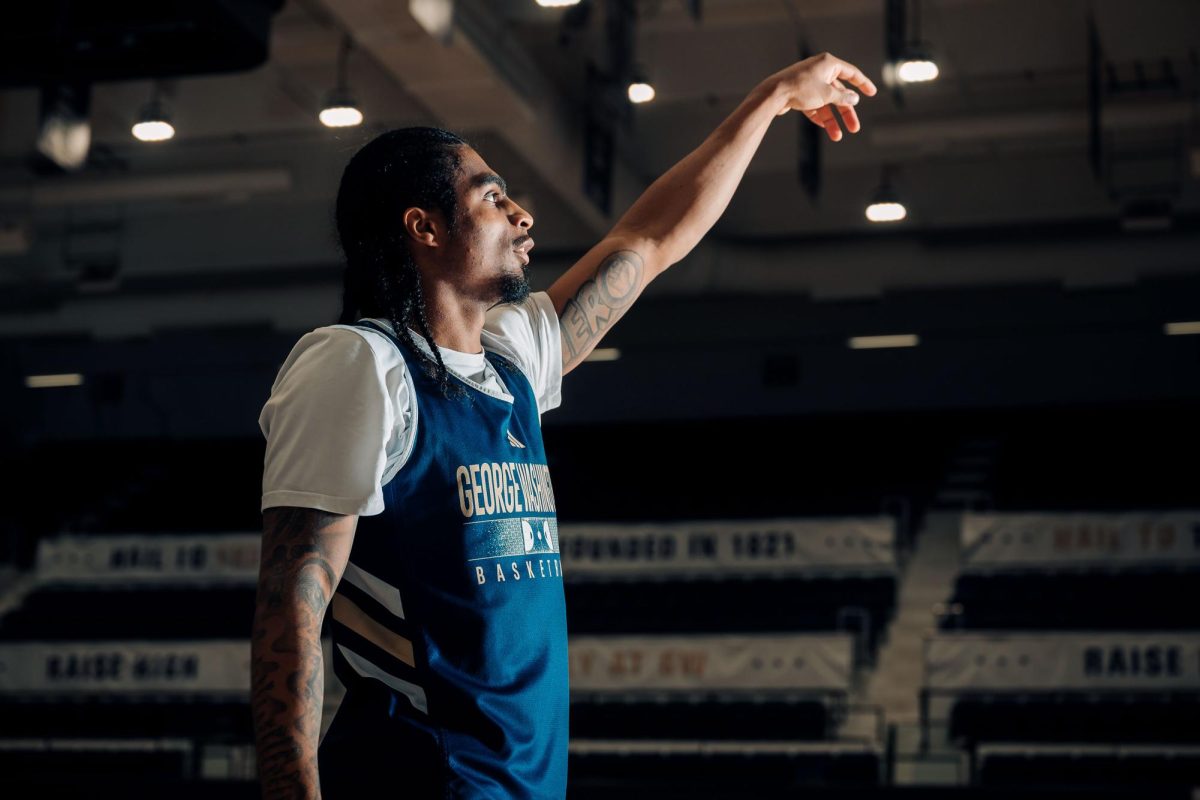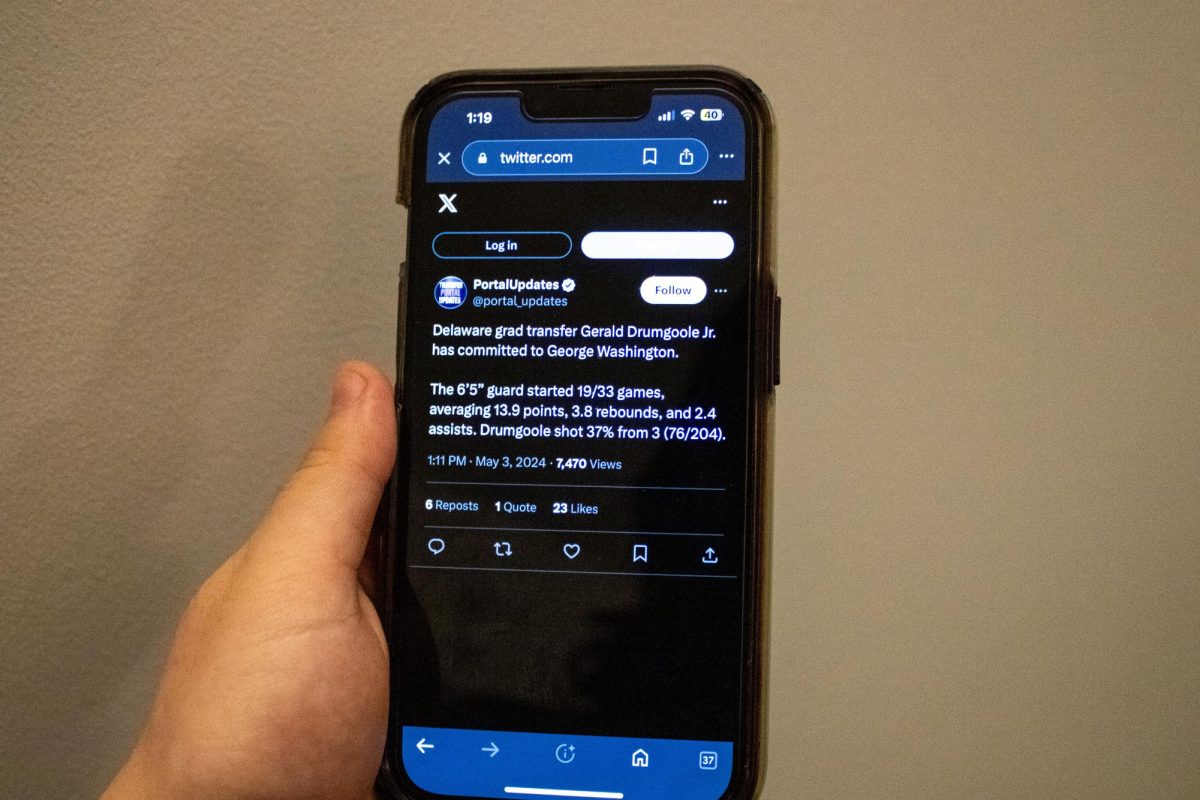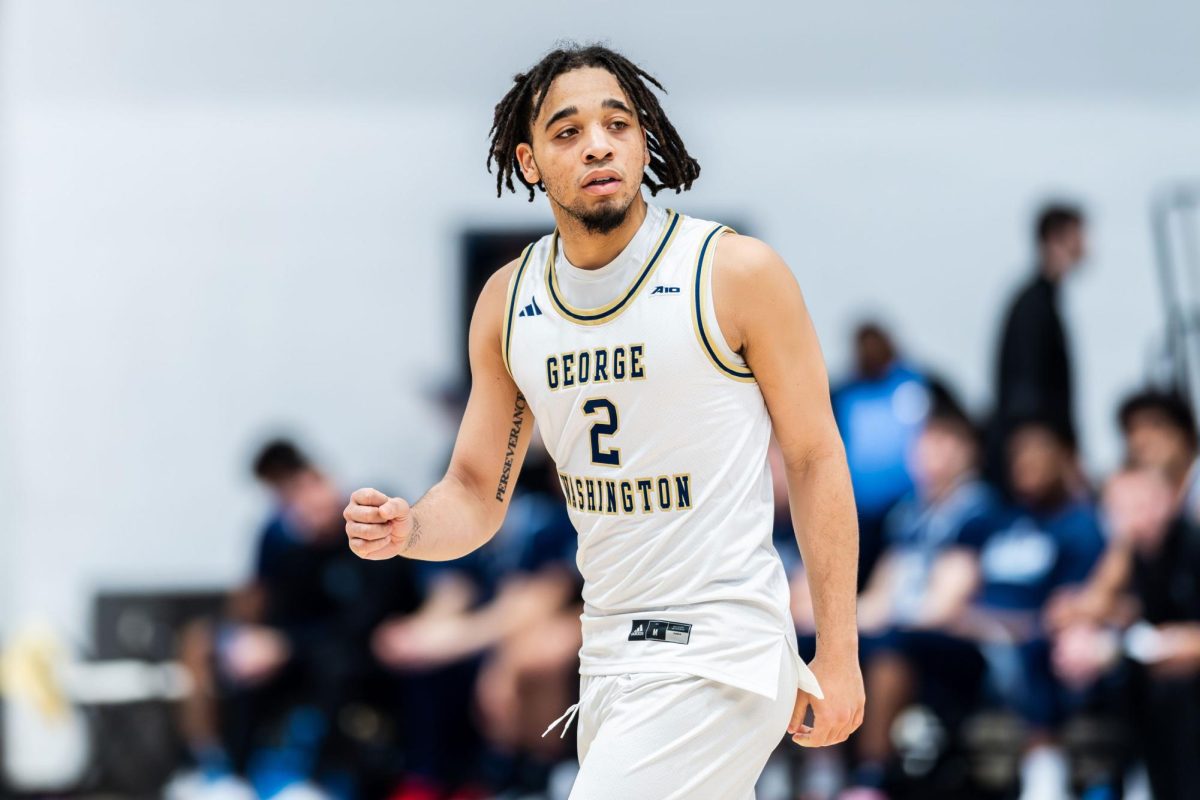
“When a team has that wingspan and size, it is hard to break the press because they cover a lot of ground. But that can’t be an excuse,” graduate student forward Tara Booker said. “We knew how tall they are. And it is not about their size or their length. It comes down to our effort first.”
The Colonials lacked intensity in the first half of play. Collectively, they struggled to beat the Auburn press and failed to find good looks on offense, and lacked aggressiveness on the defensive end. GW entered the game ranked second in the Atlantic 10 in steals with an average of 12.9 per game- but could grab only two steals in the first half of play.
Additionally, the Colonials could not stop the Tigers from getting open looks near the basket, resulting in 36 first half points off 46.9 percent shooting for the Tigers. GW was limited to only 23 first half points on 29 percent shooting. While the Auburn press gave them many easy scoring opportunities, 23 of Auburn’s 36 first half points came from second chance opportunities or GW turnovers.
“We are starting to figure out our skin a little bit and being in that comfort zone and understanding that if we attack we put opponents on their heels,” head coach Jonathan Tsipis said. “The length of the other team is relevant because we are not going to be able to stand shoulder to shoulder and out jump their players. It is more a matter of, ‘can you impose your will?’”
GW began the second half aggressively. Quick ball movement negated the Auburn press, giving the Colonials solid looks from both under the basket and behind the three-point arc. The team converted three three-pointers and five free throws after eight minutes of play in the second half, cutting Auburn’s 13-point halftime lead to only four points.
“We went on a really good run but some missed shots and turnovers prevented us from getting over that hump and taking the lead,” senior forward Megan Nipe said.
Auburn prevailed in the final minutes after converting several free throw attempts, but the Colonials established a solid rhythm on offensive in the second half. GW converted 20 field goal attempts in the game, with 17 of those scores coming off assists, establishing effective team play despite the difficulties presented by Auburn’s length.
“It is a sign that our team is growing as a whole. I am really proud of my team for staying in there,” Booker said. “The fact that we were able to keep our heads up and keep resilient shows that we are growing as a team.”
Nipe paced GW with 13 points and five rebounds. Senior guard Shi-Heria Shipp chipped in 12 points and 11 rebounds and Booker added eleven points and eight rebounds.
Freshman guard Aaliyah Brown provided a quick scoring spark off of the bench in the second half, scoring scored 10 points in 11 minutes of playing time with five of her points coming from the charity stripe.
The Colonials host District rival Howard on Saturday. GW will try to end its three game losing streak and Tsipis sees their second half success as a positive sign moving forward.
“They responded in the second half and I think that’s kind of what I want the pulse of our team to be,” Tsipis said. “We can always do things better, but we must handle things we can control. In the second half we were able to impose our will.”







